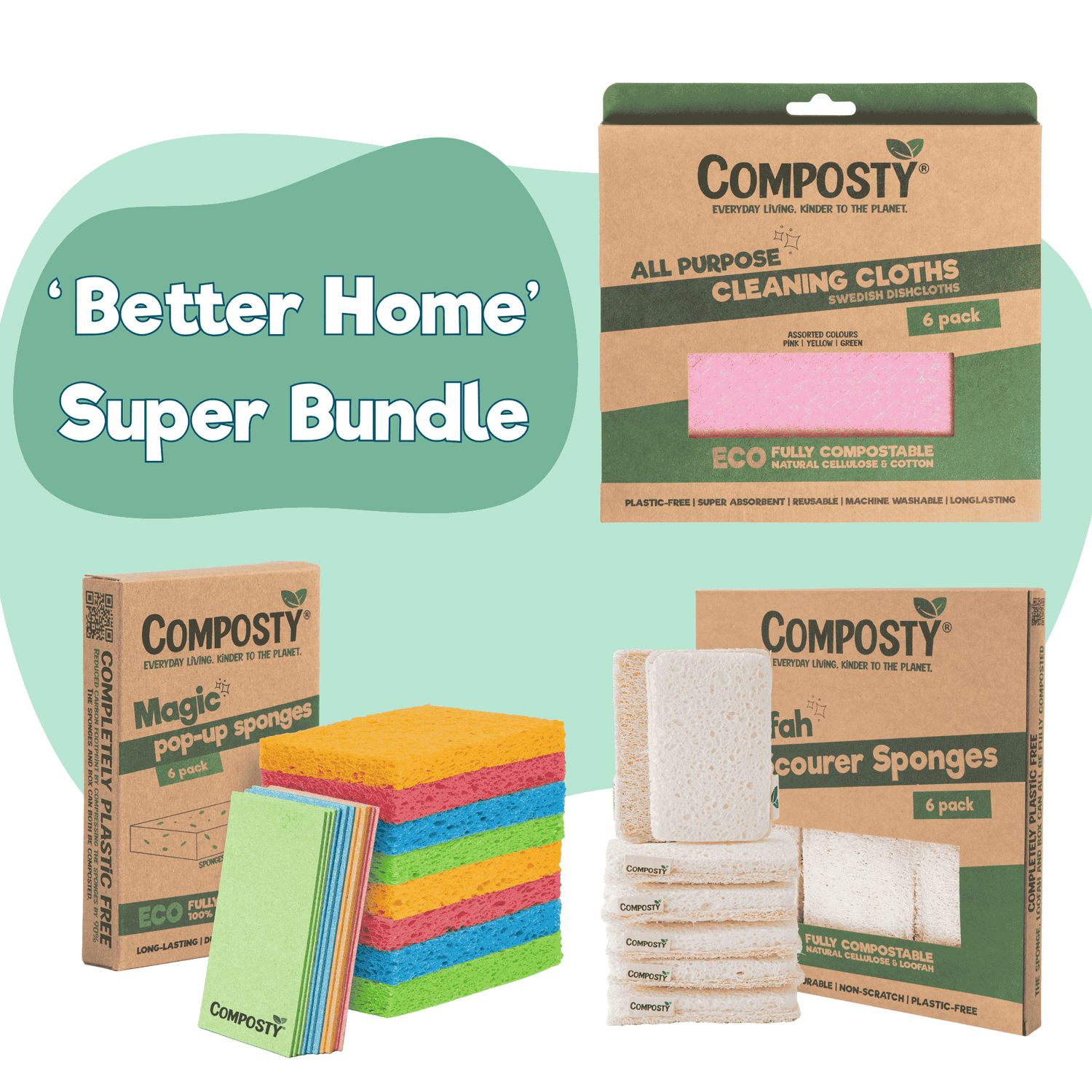
Four Simple Ways You Can Contribute to Slow Fashion on a Budget
Before the early 2000s fast-fashion boom, clothes were produced slowly, and the fashion industry used sustainable production systems. However, today's trends move faster, resulting in companies using cheap materials and conducting unethical practices to keep up with demand. If we continue to create and purchase low-quality clothes rapidly, it guarantees an unsustainable future while applying pressure on our pockets.
Fashion is built on a linear structure where clothes have a short lifespan. Still, for a promised future, the fashion industry needs to be circular by considering all steps of the product cycle from sourcing to the end of its life, where it can be recycled into something new.
Instead of waiting for businesses to change, individuals can contribute to a greener future by opting for sustainable fashion without breaking the bank. To help, we've pulled together a mini guide to kick off your slow fashion journey!
How to Contribute to Slow Fashion on a Budget
- Research before you buy
Firstly, research brands before you purchase from them. This is a great way to learn more about the prices of clothes and the company’s sustainable practices. When you're researching, you may want to consider the following points:
- Check the company's website – A quick and easy way to learn more about products and the company's ethos. Check out Aspiga for example, you will find clear evidence of their ethical credentials.
- Check social media – Visit the company's social media channels to learn more about the company and their sustainable practices.
- Check valid sources – it's also worth checking other sources, such as affiliate sites, to compare prices and check the company's ethos.
- Meaningful purchases only
We are all tempted to keep up with trends and shop for aspirational looks but is this sustainable or affordable? Marie Kondo the ultimate Organisation Guru advises people to organise their wardrobe before making any further purchases. When organising ‘Keep only those things that speak to the heart, and discard items that no longer spark joy.’ After assessing your clothes, pledge to only purchase items you really need that will add value to your wardrobe. And if you purchase new clothes, make sure it’s from a charity shop or preloved business; did you know there are over 100 billion clothes produced every year…there are enough clothes to go around.
- Quality vs quantity
Big brands such as Pretty Little Thing, Asos and other fast fashion brands use cheap synthetic fibres to keep up with demand. The problem is not only is this unsustainable but there is a risk of the item coming apart, tearing or being unable to be repaired so you will keep spending heaps of money on clothes. Quality materials last longer and are derived from natural fibres like cotton, wool, cashmere and silk. Organic materials can be considered eco-friendly as they have a lower environmental impact. Organic cotton produces around 46% less CO2e compared to conventional cotton. Arguably natural materials are more expensive but can be purchased at a second-hand shop.
- Keep the cycle going
When you have got to the point where you're ready to change your style, instead of throwing away your clothes where they will end up in a landfill, you can implement the following steps:
- Reinvent it – Gather up some styles, a sewing kit and bits of scraps to start creating something new! Reinventing a piece of clothing refresh the design and delays it from going to a landfill.
- Repair - If it's broken, fix it! When your clothes rip, tear or lose a button, mend it instead of throwing it out.
- Recycle it – If you haven't got the time to be creative, check your local recycling plants to recycle them.
- Resell – Make some extra money by reselling platforms such as Ebay, Vinted or Poshmark, this is an excellent way to extend the clothes lifespan preventing it from going to waste.
Overall, we still have a long way to go regarding slow fashion, but the above listed tips are an great ways to contribute to a greener future. Remember, every step counts!

